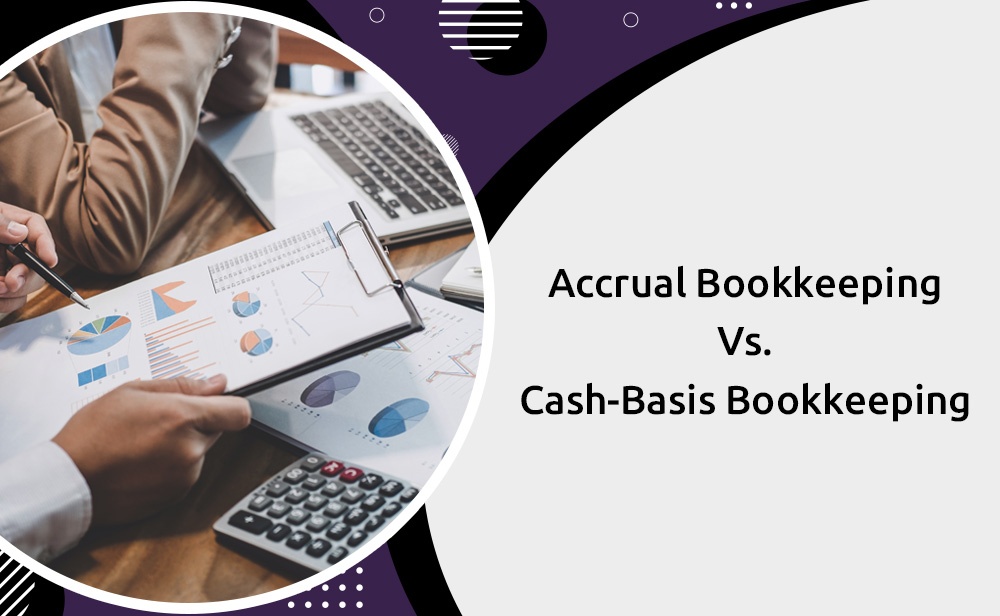Accrual Bookkeeping Vs. Cash-Basis Bookkeeping

Maintaining a steady cash flow is essential for any business to survive, start to grow, and eventually prosper. Even after turning a profit, it’s vital to keep their books in order to scale up and ensure that they can plan effectively to meet their tax liability.
However, as every business is different, the accounting method used to record revenue and expenses can significantly impact how businesses present their financial statements. Therefore, it’s essential to evaluate whether the accrual bookkeeping method or the cash-basis bookkeeping method is best for business.
To educate you about these two forms of bookkeeping, CID Bookkeeping Inc. has explained both in detail and has highlighted which one is best for you based on your industry. Read on to learn more.
1. Accrual Bookkeeping
The advantage of accrual bookkeeping is that it has a high degree of accuracy when matching expenses to revenue. It can also trace transactions anytime during the bookkeeping process using minimal supporting documents. So If you require a review or audit year-end, then the accrual method will result in an easier and quicker process.
However, the disadvantage of accrual bookkeeping is that it can be costly, and it takes time to input the level of detail required to maintain records. Also, reports may take longer to generate if you need to wait for additional vendor invoices to arrive through the mail.
2. Cash-Basis Bookkeeping
Cash-basis bookkeeping gives small businesses the ability to save money when additional detail is not required. Another benefit is that reports can be generated quicker as there is no waiting for additional documents.
In addition, few adjustments are required for the previous months when new items present themselves, as these figures will be included when they are paid in the future. That said, cash-basis bookkeeping lacks the fine detail that accrual accounting offers, and there is a lack of accuracy when comparing costs related to sales. Another disadvantage is that it’s not allowed at year-end, as during this period, the bookkeeper will need to record outstanding vendor invoices to ensure the final numbers are accurate.
Which method is best for you?
Accrual accounting is best for larger businesses with multiple shareholders and any size business that undergoes a review or an audit at year-end. If you’re a publicly-traded company, not-for-profit, or undergo an audit at year-end, you essentially have no choice but to have accrual bookkeeping completed every month.
On the other hand, cash-basis bookkeeping is excellent for small businesses that can’t pay for the professional time required to complete accrual accounting. Also, if your business doesn’t require to know what is owed to vendors daily, you can opt for the cash basis bookkeeping method. There is also the possibility of selecting a hybrid of the two depending on what your business needs.
If you require assistance to determine which process might be appropriate for you, then give us a call today. At CID Bookkeeping Inc., we combine tried and tested accounting practices and integrate them with the latest technology to create cost-effective and efficient bookkeeping solutions. Our services include tax, bookkeeping, QuickBooks, and payroll services. We serve clients across Grafton, Port Hope, Cobourg, Peterborough, Northumberland County, Prince Edward County, Belleville, and the surrounding areas.
For more details about our services, please click here or get in touch with us by clicking here.